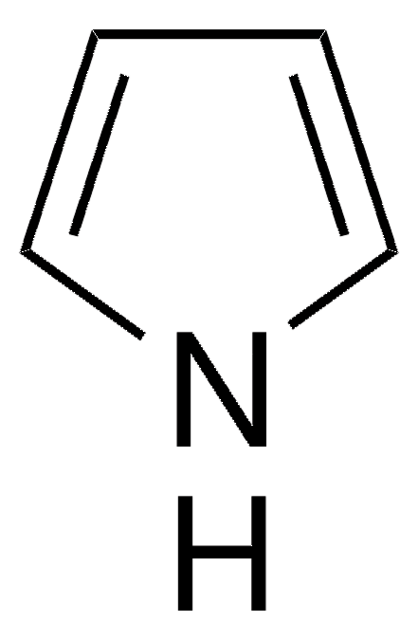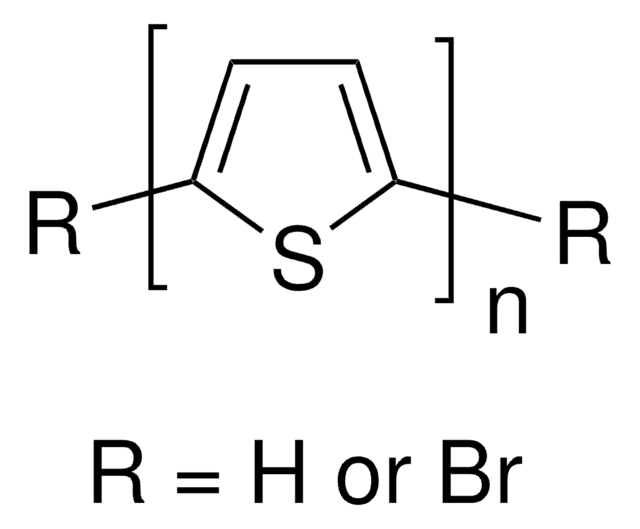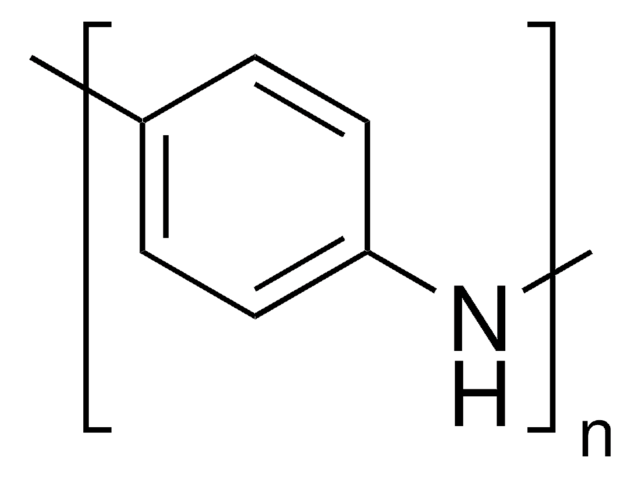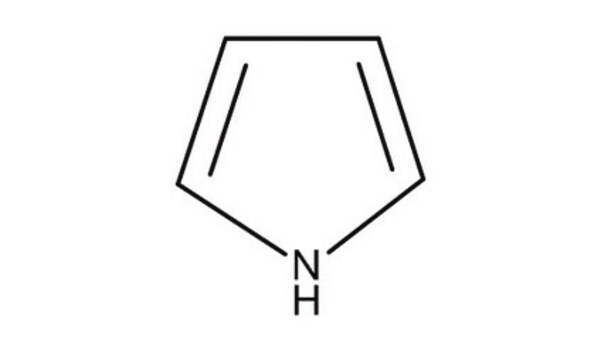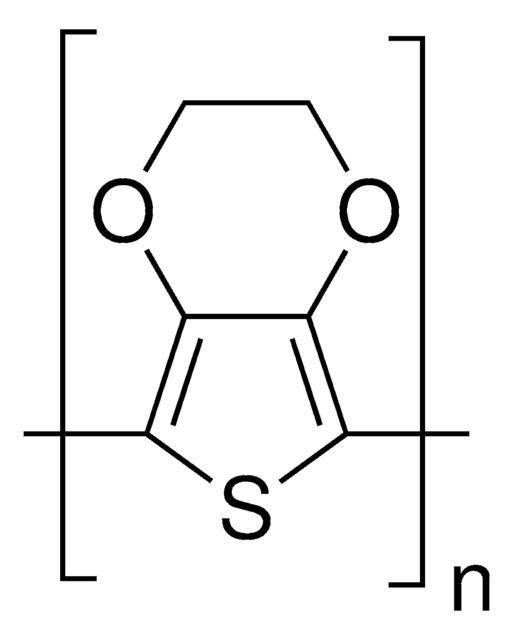578177
Polypyrrole
doped, conductivity 0.5-1.5 S/cm (pressed pellet, typical), extent of labeling: ~5 wt. % loading, coated on titanium dioxide
Synonym(s):
PPy
About This Item
Recommended Products
Quality Level
form
solid
contains
proprietary organic sulfonic acid as dopant
extent of labeling
~5 wt. % loading
solubility
H2O: insoluble
organic solvents: insoluble
InChI
1S/C4H5N/c1-2-4-5-3-1/h1-5H
InChI key
KAESVJOAVNADME-UHFFFAOYSA-N
Looking for similar products? Visit Product Comparison Guide
Related Categories
General description
Application
Packaging
Storage Class Code
13 - Non Combustible Solids
WGK
WGK 3
Flash Point(F)
Not applicable
Flash Point(C)
Not applicable
Choose from one of the most recent versions:
Already Own This Product?
Find documentation for the products that you have recently purchased in the Document Library.
Customers Also Viewed
Articles
The application of conducting polymers at the interface with biology is an exciting new trend in organic electronics research.
Dr. Tan and researcher introduce recent trends in Self-healing Soft Electronic Materials and Devices. The emergence of smart, functional SHPs will be highly beneficial to the advancement of the next-generation self-healing soft electronic devices. Autonomously self-healing devices could help to minimize the need for repair or replacement of electronics and machines, potentially reducing the cost of materials and reducing electronic waste.
While dye sensitization as the basis for color photography has been accepted for a very long time,1 attempts to use this principle for the conversion of solar light to electricity generally had resulted only in very low photocurrents, below 100 nA/cm2.2
For several decades, the need for an environmentally sustainable and commercially viable source of energy has driven extensive research aimed at achieving high efficiency power generation systems that can be manufactured at low cost.
Our team of scientists has experience in all areas of research including Life Science, Material Science, Chemical Synthesis, Chromatography, Analytical and many others.
Contact Technical Service
